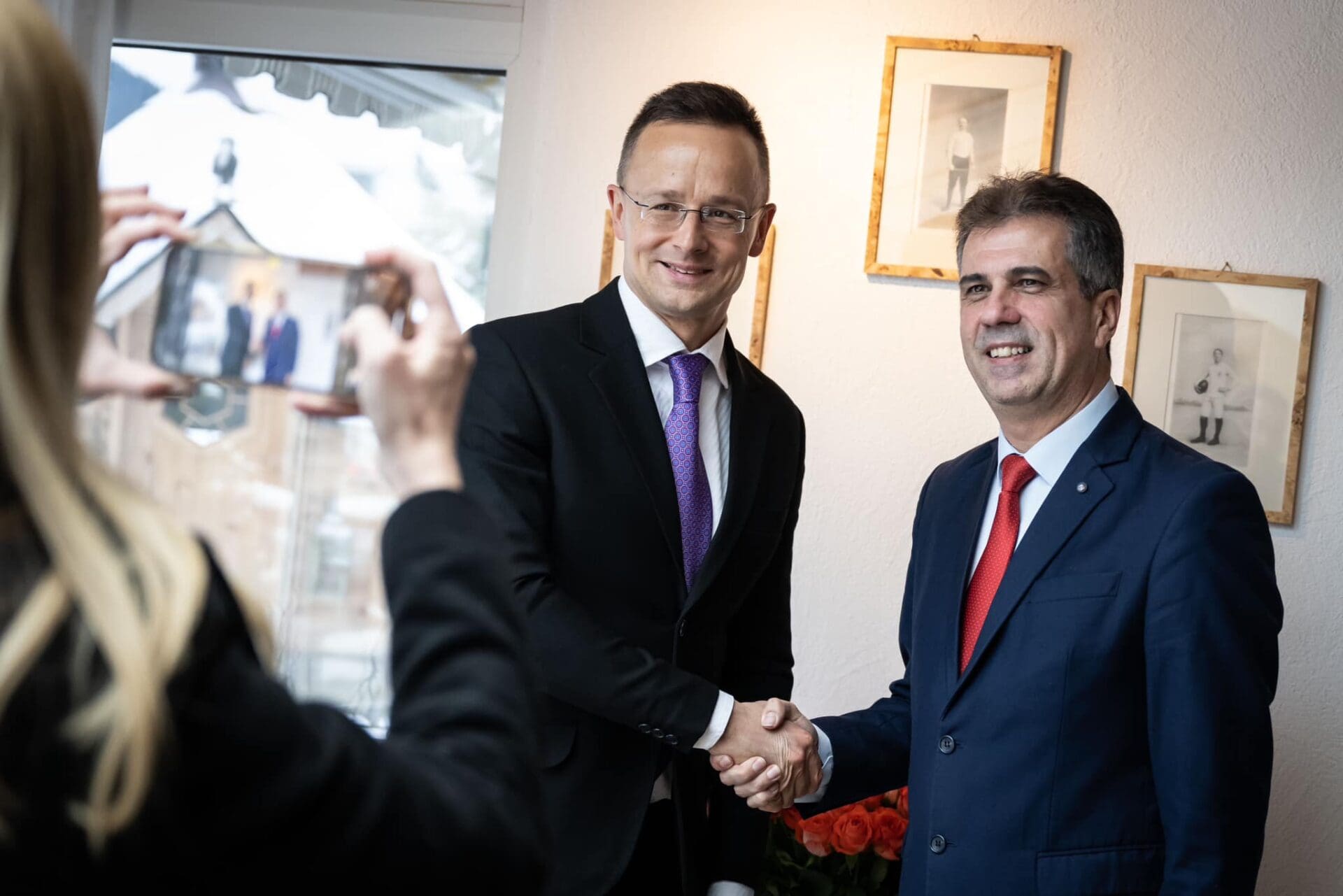This week so important events strengthening the relationship between Hungary and Israel: both Viktor Orbán and Minister of Foreign Affairs Péter Szijjártó met with Israeli politicians to deepen the Israeli-Hungarian cooperation. Szijjártó also reiterated that Hungary will stand up for Israel in the international community and ‘will not vote for anti-Israel resolutions in the future either.’
Hungarian Foreign Minister Péter Szijjártó met with the new Israeli Foreign Minister, Eli Cohen earlier this week on the sidelines of the World Economic Forum in Davos, Switzerland. After the meeting, the Hungarian minister wrote the following in his Facebook post: ‘I just met my friend Eli Cohen for the first time since he became foreign minister, however, we had already worked together before when he was in charge of economic affairs in the Israeli government. I congratulated him on Likud’s election victory, for which we were great cheerleaders, and we also strengthened the strategic alliance and friendship between the two countries.’ Péter Szijjártó added that he had assured the Israeli foreign minister that Hungary would continue to make every effort to ensure that Israel does not have to face unfair attacks and unfair treatment in international organisations. ‘We will not vote for anti-Israel resolutions in the future either,’ Minister Szijjártó nailed down.
Hungary supported Israel in the international community last year as well when the UN passed 15 resolutions against Israel and only 13 against the rest of the world. Unlike the majority of the state members of the UN, Hungary voted ‘no’ to most of the resolutions that condemned the Jewish State. Last year the United Nations General Assembly also passed the pro-Palestinian resolution to commemorate the 75th year of the ‘Nakba’—meaning ‘catastrophe’ in Arabic—in May 2023. This means that the 75th anniversary of the establishment of the Jewish State will be mourned by a high-profile pro-Palestinian event in the UN General Assembly’s Hall. As one of the thirty member states that voted against the proposal, Hungary also made it clear that the 75th Independence Day of the Jewish State should be celebrated and not mourned as a ‘disaster’.
The Hungarian minister added in his Facebook post: ‘I am proud that, as the only European foreign minister,
I was present in Washington a few years ago at the signing of the Abraham Accords, the support of which I reaffirmed to the foreign minister.
We believe that after the unsuccessful attempts of the past decades, these agreements represented the first hope that peace would come within reach in the Middle East.’ Péter Szijjártó also highlighted in his post that Israel and Hungary are connected by the Jewish community living in Hungary, and by the Hungarian diaspora in Israel, and that he and his counterpart agreed they would work on the development of economic, investment, and technological cooperation between the two countries. The minister concluded that it is a ‘a legitimate expectation that 2023 will be another successful year in Hungarian-Israeli relations.’
This week saw another important event strengthening Hungarian-Israeli cooperation as Viktor Orbán met with Israeli politician Amiad Cohen, the director general of Tikvah Fund Israel in his office in Budapest at the Carmelite Monastery. Tikvah Fund Israel is a non-profit ideas institution that is committed to supporting the intellectual, religious, and political leaders of the Jewish people and the Jewish State. The NGO also deals with conservative education, including the translation of books and the training of the next generation of conservative politicians. Balázs Orbán, the prime minister’s political director, wrote the following Facebook post about the meeting: ‘Like Mathias Corvinus Collegium, Tikvah Fund Israel is committed to nurturing talent and building community. We hope that the visit of Director General Amiad Cohen to Budapest will provide a solid foundation for close cooperation between our organisations.’ He added: ‘Hungary is committed to further strengthening the close cooperation with Israel based on a shared understanding of national interests.’







